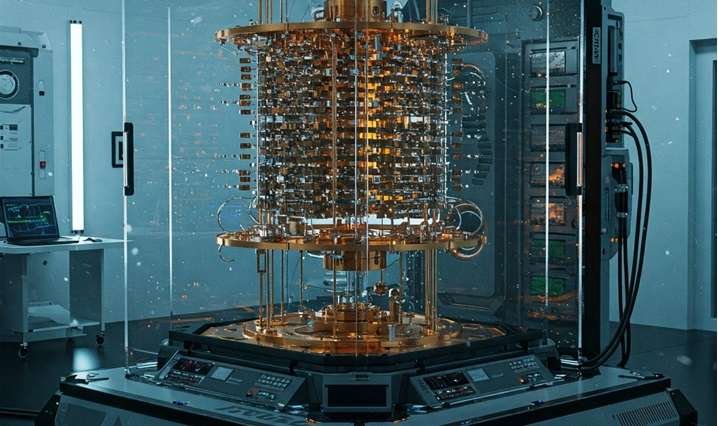Join Forward-thinking Leaders
Elevate your expertise with tech insights, startup breakthroughs, and leadership intelligence curated for your priorities.
Elevate your expertise with tech insights, startup breakthroughs, and leadership intelligence curated for your priorities.

Subscribe to our newsletter!

Last week, Microsoft sent shockwaves through the tech world with the announcement of its latest breakthrough in quantum computing: the successful development and launch of the Majorana 1 Quantum Chip. This innovation represents a monumental leap forward in the quest to build scalable, fault-tolerant quantum computers. With the promise of paving the way to one million qubits, Microsoft’s announcement has reignited excitement about the future of quantum computing and its potential to revolutionize industries ranging from cryptography to drug discovery. A million-qubit quantum computer is a milestone that can solve some of the world’s most difficult real-world industrial and scientific challenges.
At the heart of Microsoft’s announcement is the Majorana 1 Quantum Chip, a novel quantum processor that leverages Majorana zero modes—exotic quasiparticles that exhibit unique quantum properties. These particles, first theorized in 1937 by Italian physicist Ettore Majorana, are their own antiparticles and are highly resistant to environmental noise, a major challenge in quantum computing. By harnessing these properties, Microsoft has created a quantum chip that is inherently more stable and less error-prone than traditional qubits, which are often fragile and susceptible to decoherence.
The Majorana-based qubits, dubbed topological qubits, are a key innovation in Microsoft’s quantum architecture. Unlike conventional qubits, which rely on superconducting circuits or trapped ions, topological qubits are protected by their geometric structure, making them far more robust. This stability is critical for scaling quantum systems to the millions of qubits required for practical, large-scale applications.
Microsoft’s announcement is not just about the Majorana Quantum Chip itself but also about the roadmap it lays out for the future of quantum computing. The company has set an ambitious goal: to build a quantum computer capable of operating at one million qubits. To put this in perspective, today’s most advanced quantum computers, such as IBM’s Condor and Google’s Sycamore, operate with just a few hundred qubits. Achieving one million qubits would represent a thousand-fold increase in computational power, unlocking possibilities that are currently beyond our reach.
The path to one million qubits is fraught with technical challenges, but Microsoft’s approach with the Majorana Quantum Chip offers a compelling solution. By using topological qubits, the company aims to overcome the two biggest hurdles in quantum computing: error rates and scalability. Traditional qubits are prone to errors due to their sensitivity to external disturbances, requiring complex error-correction techniques that consume additional qubits. Topological qubits, on the other hand, are naturally error-resistant, reducing the need for extensive error correction and freeing up more qubits for computation.
Moreover, the modular design of the Majorana Quantum Chip allows for easier scaling. Microsoft envisions a future where these chips can be interconnected to form larger quantum systems, gradually building up to the one million qubit milestone. This modular approach is a stark contrast to the monolithic designs of current quantum processors, which face significant engineering challenges as they grow in size.
The implications of Microsoft’s breakthrough are profound. A quantum computer with one million qubits could solve problems that are currently intractable for classical computers. For example, it could revolutionize fields like:
Microsoft’s announcement also underscores the company’s commitment to quantum computing as a core part of its long-term strategy. By investing heavily in research and development, Microsoft is positioning itself as a leader in the quantum race, alongside competitors like IBM, Google, and Intel.

While the Majorana Quantum Chip represents a significant step forward, there are still challenges to overcome. Manufacturing topological qubits at scale remains a complex task, and integrating them into a functional quantum computer will require further innovation. Additionally, the software and algorithms needed to harness the power of one million qubits are still in their infancy.
However, Microsoft’s announcement has injected new optimism into the field. The company’s partnership with academic institutions, government agencies, and industry leaders demonstrates a collaborative approach to tackling these challenges. With the Majorana Quantum Chip, Microsoft has not only advanced the state of the art but also laid the groundwork for a future where quantum computing transforms our world.
Microsoft’s unveiling of the Majorana 1 Quantum Chip marks a pivotal moment in the history of quantum computing. By harnessing the unique properties of Majorana zero modes, the company has taken a giant leap toward building a scalable, fault-tolerant quantum computer. The vision of one million qubits is no longer a distant dream but a tangible goal on the horizon. As we stand on the brink of this new era, the possibilities are limitless. Microsoft’s breakthrough reminds us that the future of computing is not just about faster processors or larger datasets—it’s about reimagining what’s possible.
More TechNews from Thetechrising.com